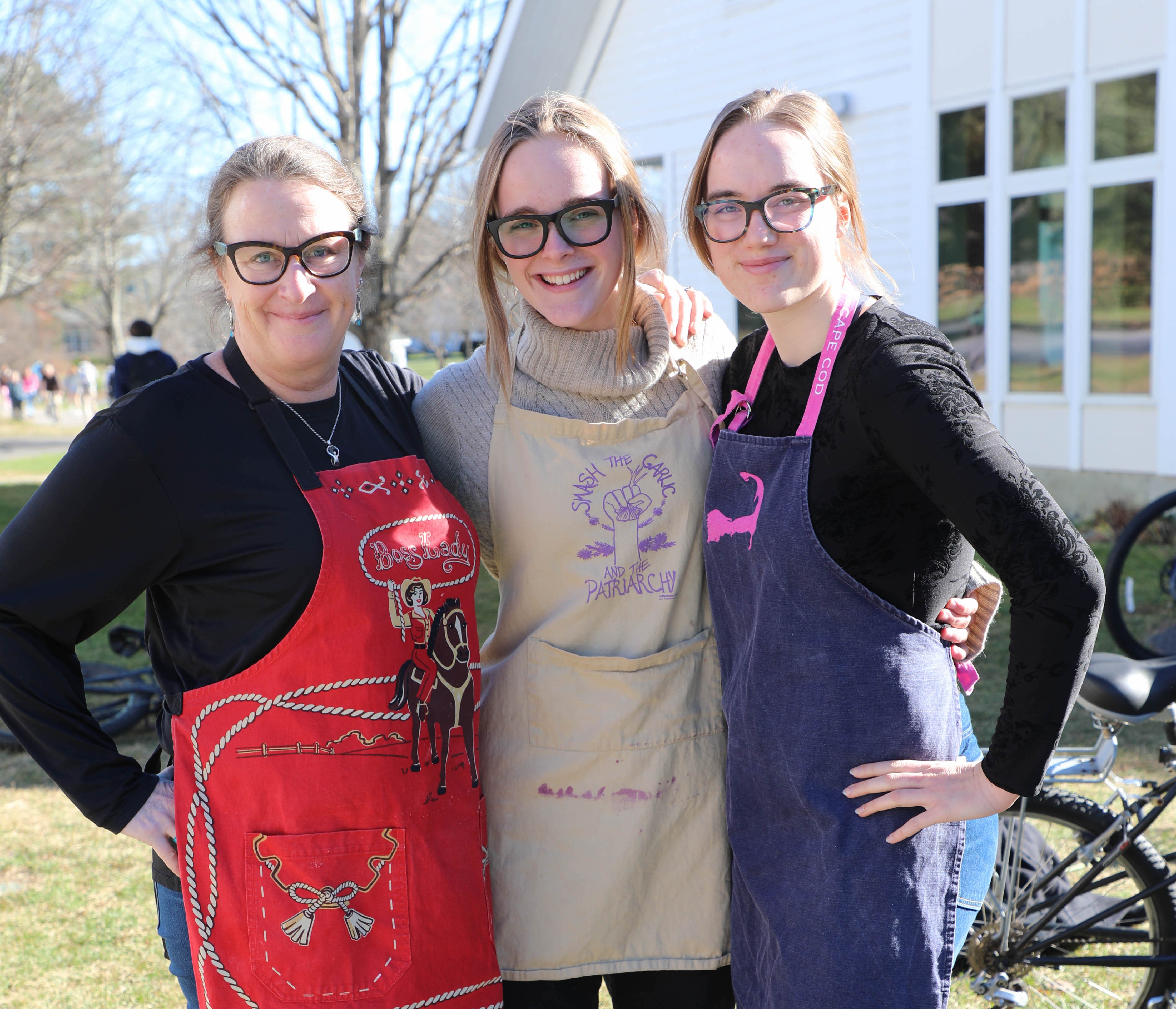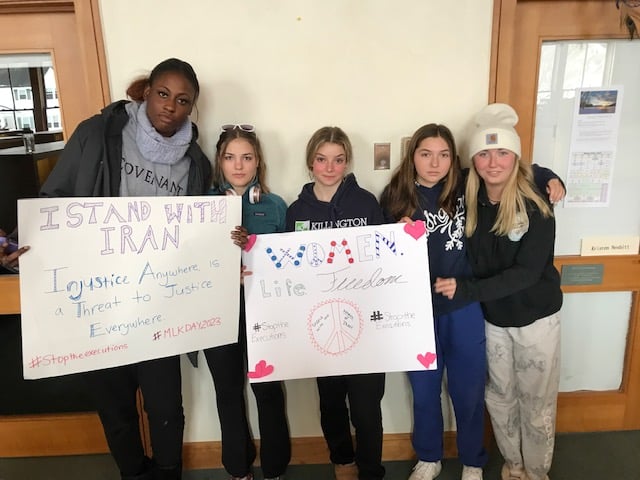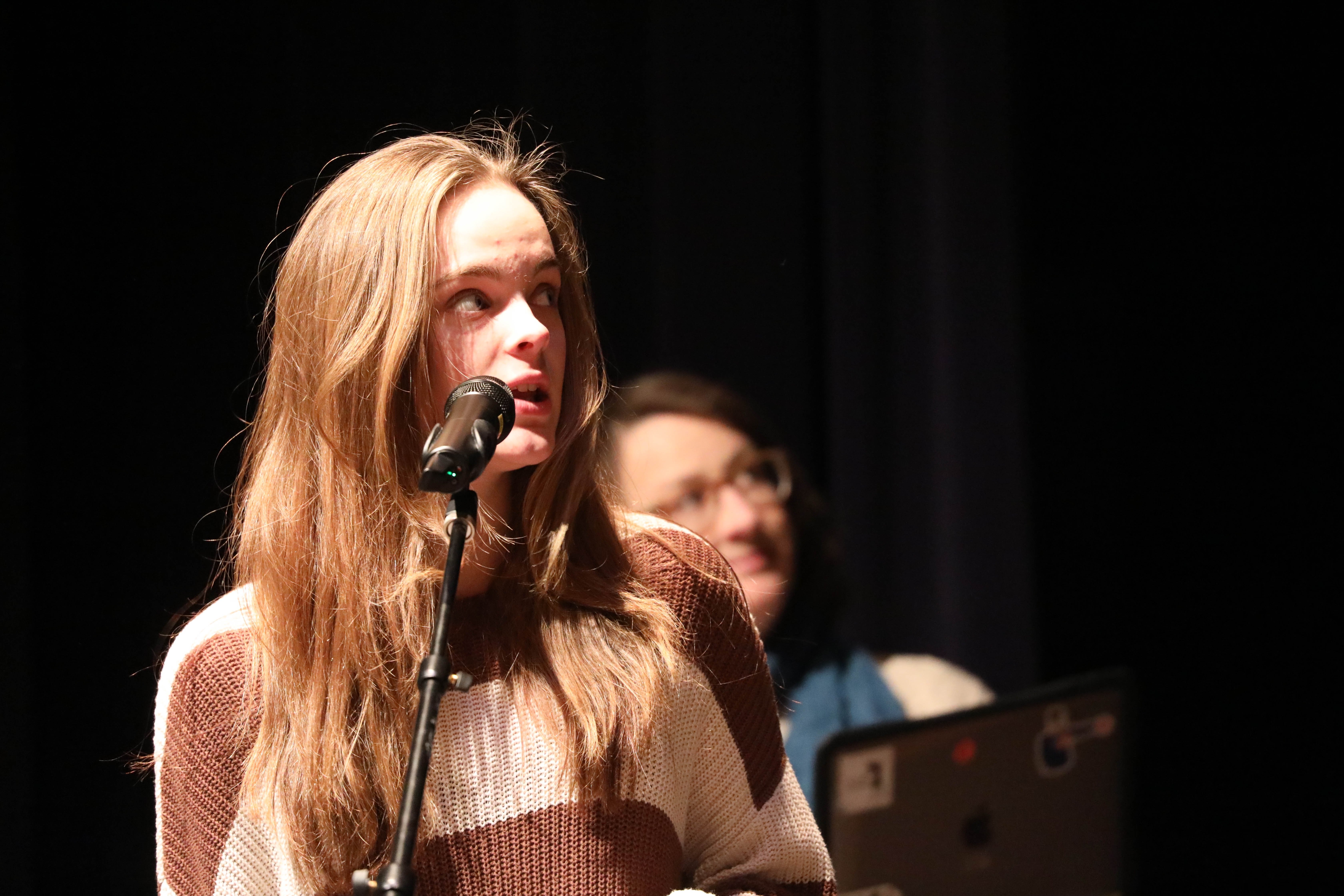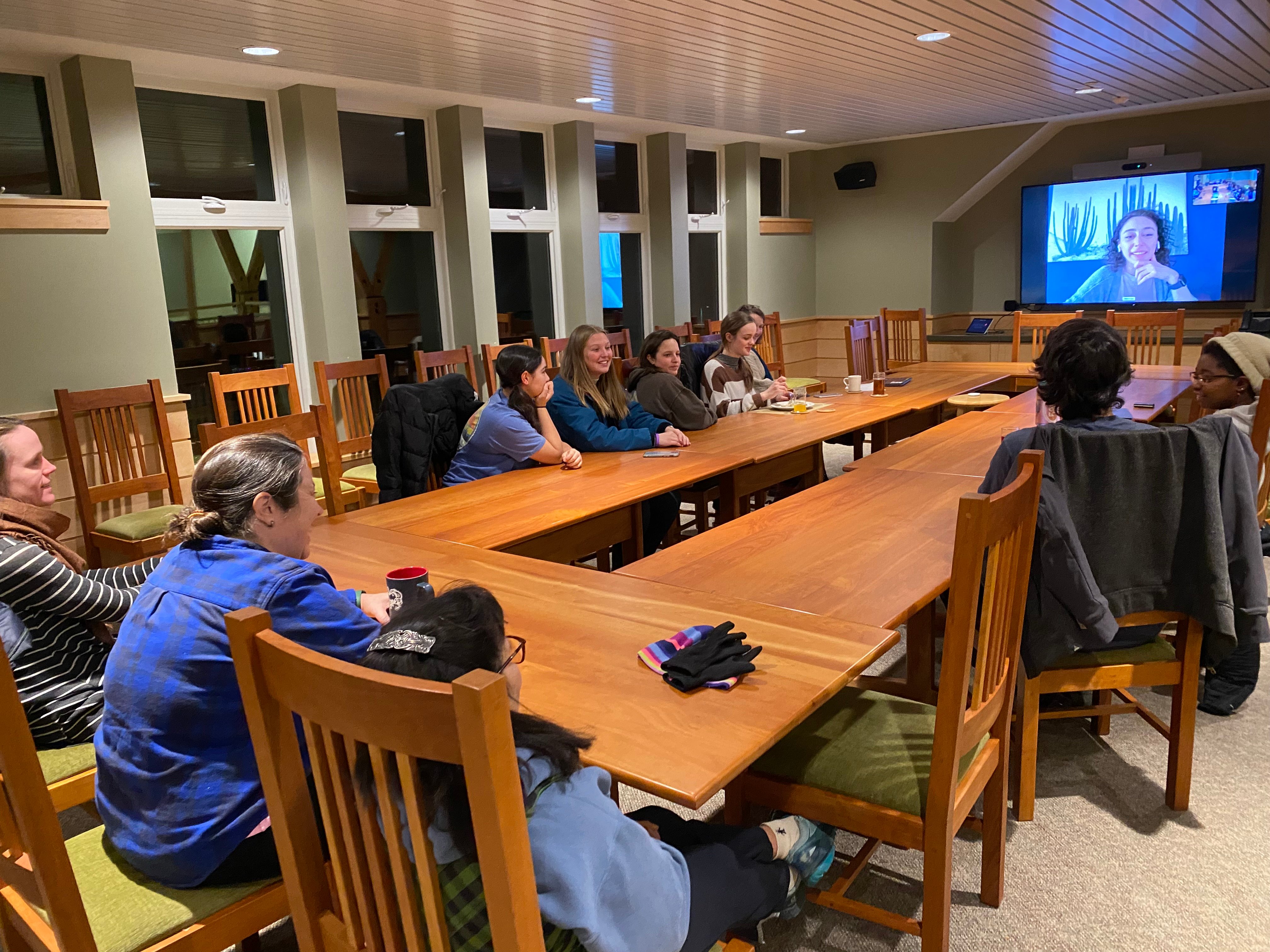What do we do with our outrage? This is the question first year student Alice Ryan ‘26 was grappling with when she first learned about the executions of political dissidents in Iran.
When Mahsa Amini was beaten to death by Iran’s "morality" police for allegedly wearing her headscarf too loosely, the nation rose up in protest. The "morality" police are infamous for their violence and the arbitrary nature by which they arrest and punish those who break the rules of their country, which is governed by Sharia Law. Since Mahsa’s death the people of Iran have been protesting bravely, risking and giving their lives in the process. The exact number of those executed by the Iranian government is unknown but it is at least in the many hundreds – many teenagers among them. Using social media and VPNs to circumvent the authoritarian state’s stranglehold of the internet, Iranians’ stories have reached more people outside their country than ever before.

When the hashtag #stoptheexecutions reached Alice, she had been unaware of the atrocities taking place in Iran. While social media is often an outlet that receives more criticism than praise, it can be a powerful tool for spreading vital information. Alice found herself enraged and horrified about what was taking place and paralyzed with a feeling of helplessness. She took these feelings to her advisor, English Department Chair Shauna Turnbull, who helped Alice devise a plan.

Martin Luther King Jr. Day was around the corner, so Alice used this opportunity – a day when we all turn our focus towards social justice and uplifting the voices of those on the margins – to organize a group to create protest signs for Iran. Alice, Shauna, and their new cohort (digitally) joined the Iranian protests, sharing images of their posters and the names of those imprisoned, with hopes of being a part of the loud voice to stop executions.

Inspired by Alice and her work to educate her fellow students at Proctor and join a global movement, I thought there might be a way to continue to expand the conversation. My dear friend and former graduate school classmate, Mehrnaz Mohammadi, is an Iranian actor, writer, and director living in Los Angeles. I connected with Mehrnaz and told her of Alice’s work at Proctor and invited her to join us for a roundtable video call. Mehrnaz has an extraordinary story of her own – one that includes being jailed by the morality police and the eventual decision to leave Iran and her family behind to immigrate to the United States. Mehrnaz shared her stories as well as the state of Iran from a native’s perspective.

As Mehrnaz was speaking about the bravery of those protesting in the streets, she was asked about her own decision to ultimately leave in search of a better and safer life. She looked at our students and said: “You know great things await but you also know you have to sacrifice a piece of yourself to attain them.” After Mehrnaz spoke these words, a hush fell over the room, and we let their power sink in.

It is often outside the walls of the traditional classroom that we gain the most perspective. Experiential education takes many forms – some days it may look like a trimester at sea, and on others it looks like the face of Mehrnaz Mohammadi. This discussion offered students a glimpse into a world far beyond Proctor, and an opportunity to gain a perspective that would not have been possible without the courageous voice of someone’s first-hand experience. Thanks to Alice’s initiative and Mehrnaz’s willingness to engage with the Proctor community we were able to share this profoundly moving experience and, hopefully, learn ways to positively harness our outrage for good.








